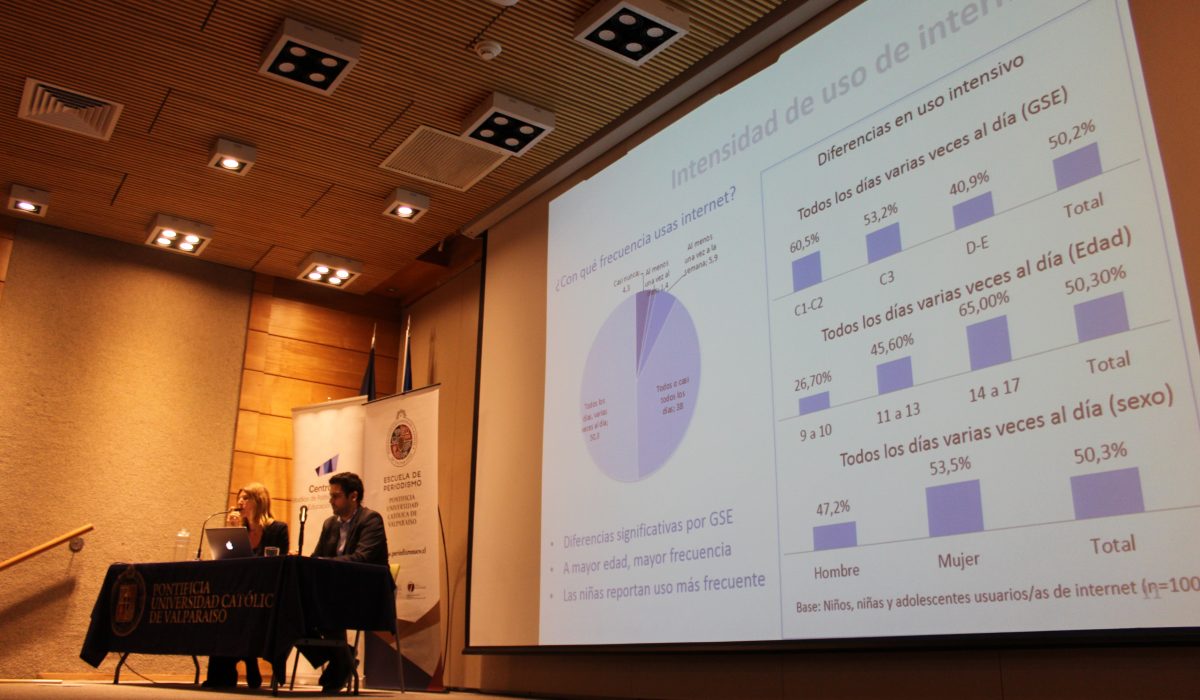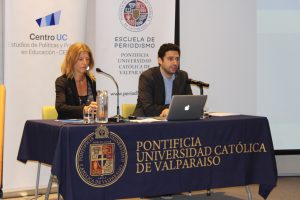The survey was carried out between August and October 2016 and included 1,000 children aged 9 to 17 years who are internet users and their parent or carer. The survey is nationally representative (urban areas of more than 100,000 inhabitants and less than 70,000) and covered the 15 regional districts in Chile. It involved face to face computer-assisted personal interviews (CAPI) at children’s homes.
The country findings were launched at a two-day conference on ‘The Challenges of a Digital Society’ held in Santiago in April 2017.
Speaking about the new findings, Patricio Cabello emphasised:
“We found that 36% of children and adolescents had at least one upsetting experience online, for most of them it was just once or twice in a year. Those who encounter negative experiences frequently are only a small proportion. This is an interesting finding in our context where parents and media seem very worried about negative online experiences, while online opportunities, digital skills and positive experiences receive less attention. Now we know more about the complexity of a range of online behaviors, for example how parents mediate and support children’s online activities, and how children perceive such mediation.”
Magdalena Claro adds:
“These results are relevant to social and educational policies in Chile, since they show that, although children are increasingly having access to digital technologies, the quality of this access and the skills they have to benefit from this use are shaped by their family’s social, economic and cultural background. Participating and benefiting from digital opportunities requires digital skills that the education system should develop in every student: but if one third of the children who are internet users in Chile report never using the Internet at school, it is clear that this is not happening.”
Research Team: Patricio Cabello (coordinador), Magdalena Claro, Daniela Lazcano, Lorena Antezana, Tania Cabello-Hutt, Luis Maldonado, and Amaranta Alfaro
Further materials from the study
Chile: a third of children do not use the internet at school
Download the presentation with findings
Interview with Prof Sonia Livingstone (LSE) at the Challenges of a Digital Society Conference (Chile, April 2017)
You can sign up to receive the latest research news from Global Kids Online by email. Please forward this message to anyone you think may be interested.









